52 start with I start with I

Robert Hart’s forty-five-year administration of China’s customs service was a unique achievement. In these letters Hart speaks to us directly from a time long past in China, but a time that may seem only yesterday to a Western reader. The result is a primary source for the history of modern China and the era of foreign privilege there.
Bearing sole responsibility for the Chinese Maritime Customs as its Inspector General, Hart built up an international staff of thousands, facilitated foreign trade, gave the late-Ch’ing court its principal new revenues, and fostered China’s modernity in administration, schools, naval development, postal service, and many other lines. Behind the scenes Hart was also a diplomat who settled the Sino–French war, changed Macao’s status, got boundaries delimited with Burma and India, and mitigated the disasters of imperialism. His career at Peking, coinciding with that of the Empress Dowager Tz’u-hsi, represented the constructive side of the unequal treaty system and Victorian Britain’s informal empire in East Asia.
The publication of the great I. G.’s weekly or fortnightly letters to his confidant and London commissioner, James Duncan Campbell, gives us an intimate, inside view of Hart’s problems and methods. He appraises his employers in China’s foreign office, the Tsungli Yamen, and comments pithily on the complex flow of events and personalities. He quotes the Confucian Classic but, even more, the Latin poets. His personal life is revealed—standing long hours at his writing desk, finding solace in the violin, keeping his own counsel, constantly isolated by his responsibilities. Having no confidant in Peking, he explains himself to his loyal agent in London.
The Hart–Campbell letters, after five years’ editing and annotation and with an informed introduction by Hart’s final successor as foreign I. G., L. K. Little, thus take their place as one of the great historical treasures that bring a vanished era back to life.

Winner of the Robert H. Ferrell Book Prize
“The Idealist is a powerful book, gorgeously written and consistently insightful. Samuel Zipp uses the 1942 world tour of Wendell Willkie to examine American attitudes toward internationalism, decolonization, and race in the febrile atmosphere of the world’s first truly global conflict.”
—Andrew Preston, author of Sword of the Spirit, Shield of Faith
A dramatic account of the plane journey undertaken by businessman-turned-maverick-internationalist Wendell Willkie to rally US allies to the war effort. Willkie’s tour of a planet shrunk by aviation and war inspired him to challenge Americans to fight a rising tide of nationalism at home.
In August 1942, as the threat of fascism swept the world, a charismatic Republican presidential contender boarded the Gulliver at Mitchel Airfield for a seven-week journey around the world. Wendell Willkie covered 31,000 miles as President Roosevelt’s unofficial envoy. He visited the battlefront in North Africa with General Montgomery, debated a frosty de Gaulle in Beirut, almost failed to deliver a letter to Stalin in Moscow, and allowed himself to be seduced by Chiang Kai-shek in China. Through it all, he was struck by the insistent demands for freedom across the world.
In One World, the runaway bestseller he published on his return, Willkie challenged Americans to resist the “America first” doctrine espoused by the war’s domestic opponents and warned of the dangers of “narrow nationalism.” He urged his fellow citizens to end colonialism and embrace “equality of opportunity for every race and every nation.” With his radio broadcasts regularly drawing over 30 million listeners, he was able to reach Americans directly in their homes. His call for a more equitable and interconnected world electrified the nation, until he was silenced abruptly by a series of heart attacks in 1944. With his death, America lost its most effective globalist, the man FDR referred to as “Private Citizen Number One.”
At a time when “America first” is again a rallying cry, Willkie’s message is at once chastening and inspiring, a reminder that “one world” is more than a matter of supply chains and economics, and that racism and nationalism have long been intertwined.

Benjamin Schwartz taught at Harvard from 1950 until his retirement in 1987. Through his teaching and writing, he became a major force in the field of Chinese studies, setting standards—above all in the area of intellectual history—that have been a source of inspiration to students and scholars worldwide. His influence extends well beyond the China field, cutting across conventional disciplinary boundaries, touching political science, religion, philosophy, and literature as well as history.
The essays in this book are by scholars who have studied with Benjamin Schwartz. Given the range of his own interests, it is fitting that they embrace an expanse of time from the Zhou dynasty to the present and a range of subjects equally inclusive—ancient and medieval Chinese thought, the fate of democracy in early Republican China, the development of aesthetic modernism in the 1920s and 1930s and its reemergence in the post-Mao era, the emphasis on spiritual regeneration and cultural transformation in Chinese and Japanese Marxism, popular values in twentieth-century China (as reflected in village theatrical performances), the larger issue of what part our own values should take in the study and assessment of other societies and cultures, and the equally broad issue of how we are to address the relationship between Chinese modernization and China’s traditional culture.
Despite this heterogeneity and the fact that the contributors include two political scientists, five historians with strong philosophical interests, and three scholars whose writing bridges the disciplines of history and literature, there is a surprising coherence to the volume. Almost all the authors consciously address either aspects of Schwartz’s general approach or specific themes dealt with in his work. Each contribution is about ideas and takes ideas and their societal roles seriously. Although presented in the specific context of China, the issues raised in these essays are important to the world beyond China. Exploring them in both their Chinese and non-Chinese settings reflects the power of Schwartz’s own work in illuminating a broader canvas of human thought.
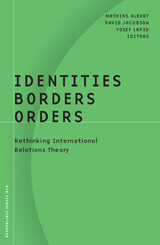
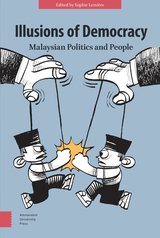
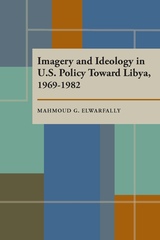
How close to reality was the official U.S. image of Libya through the Nixon-Ford, Carter, and Reagan administrations? After recounting the actions of Libya and the United States in the Middle East since 1969, ElWahrfally concludes that it was very far from accurate.
Using personal interviews as well as scholarly research, ElWarfally demonstrates that recent U.S. relations with Libya, regardless of rhetoric, have been primarily determined by whether or not Libya serves U.S. interests in the region: maintaining access to Middle Eastern oil, protecting Israel, and limiting Soviet expansionism. Just as the official image of Libya has veered from one extreme to another, U.S. policy responses have also often conflicted with the publicly stated view.
The Nixon administration was at first friendly toward Libya, even though Qaddafi ejected the U.S. military and nationalized the oil industry, because of Libya's avowed anticommunism and U.S. dependence on Libyan oil. After 1976, the official U.S. image was more hostile, and Libya was attacked as a destabilizing influence in the Middle East. Outrage reached new heights during the Reagan administration, which made several unsuccessful covert attempts to unseat Qaddafi, mounted an embargo and military provocations, and in 1986 bombed Libya on a pretext later revealed to be false.
Combining theory with current history, this book demonstrates that fixed ideas and misinterpretation of events may have more to do with foreign policy behavior than facts do. Suggesting a new direction for research into relations between the superpowers and the Third World, it will interest scholars, students, and policymakers concerned with the Middle East.
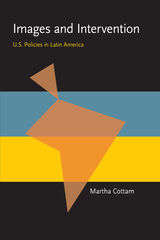

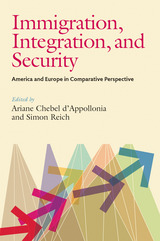
At the core of much policy debate is the inherent paradox whereby immigrant populations are frequently perceived as posing a potential security threat yet bolster economies by providing an inexpensive workforce. Strict attention to border controls and immigration quotas has diverted focus away from perhaps the most significant dilemma: the integration of existing immigrant groups. Often restricted in their civil and political rights and targets of xenophobia, racial profiling, and discrimination, immigrants are unable or unwilling to integrate into the population. These factors breed distrust, disenfranchisement, and hatred-factors that potentially engender radicalization and can even threaten internal security.
The contributors compare policies on these issues at three relational levels: between individual EU nations and the U.S., between the EU and U.S., and among EU nations. What emerges is a timely and critical examination of the variations and contradictions in policy at each level of interaction and how different agencies and different nations often work in opposition to each other with self-defeating results. While the contributors differ on courses of action, they offer fresh perspectives, some examining significant case studies and laying the groundwork for future debate on these crucial issues.
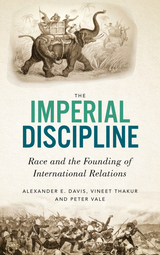
This book questions the accepted origins of the field of International Relations (IR). Commonly understood to have emerged from the horrors of WW1 with the goal of bringing about world peace, the authors argue that on the contrary, IR came from a somewhat less noble tradition – that of the Round Table.
The Round Table were a network of imperialists emerging in the late 1800s across five key British imperial societies: Australia, Canada, New Zealand, South Africa and India. Their aim was to improve imperial governance, placing the empire into a position to control world affairs. Although they ultimately failed to rearrange world order according to their vision, they did help to build what we now call the discipline of IR.
The Round Table's 'scientific method' for the study of world affairs was rapidly subsumed into each geopolitical context. Through telling this story, the authors recover it, and interrogate its meanings for the discipline of IR today. They show the importance of the Global South to IR's foundations, and argue that IR scholarship in this period was intertwined with imperial racial thought in ways that it should not and cannot forget.
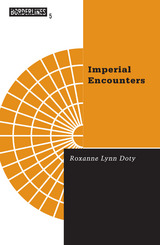


An Imperial Path to Modernity examines the role of liberal intellectuals in reshaping transnational ideas and internationalist aspirations into national values and imperial ambitions in early twentieth-century Japan. Perceiving the relationship between liberalism and the international world order, a cohort of Japanese thinkers conformed to liberal ideas and institutions to direct Japan’s transformation into a liberal empire in Asia. To sustain and rationalize the imperial enterprise, these Japanese liberals sought to make the domestic political stage less hostile to liberalism. Facilitating the creation of print-mediated public opinion, liberal intellectuals attempted to enlist the new middle class as a social ally in circulating liberal ideas and practices within Japan and throughout the empire.
In tracing the interconnections between liberalism and the imperial project, Jung-Sun N. Han focuses on the ideas and activities of Yoshino Sakuzo (1878–1933), who was and is remembered as a champion of prewar Japanese liberalism and Taisho democracy. Drawing insights from intellectual history, cultural studies, and international relations, this study argues that prewar Japanese liberalism grew out of the efforts of intellectuals such as Yoshino who worked to devise a transnational institution to govern the Japanese empire.
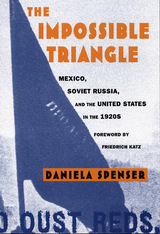
Based on documents from the archives of several nations—including reports by former Mexican diplomats in Moscow that have never before been studied—the book analyzes the Mexican government’s motivation for establishing relations with the Soviet Union in the face of continued imperialist pressure and harsh opposition from the United States. After explaining how Mexico established diplomatic ties with the Soviet Union in 1924 in an attempt to broaden the spectrum of its alliances after several years of uneven relations with the United States, Spenser reveals the troubled nature of the relationship that ensued. Soviet policy toward Mexico was characterized by a series of profound contradictions, varying from neglect to strong involvement in Mexican politics and the belief that Mexico could become a center of world revolution. Working to resolve and explain these contradictions, Spenser explores how, despite U.S. objections to Mexico’s relations with the Soviet Union, Mexico continued its association with the Soviets until the United States adopted the Good Neighbor Policy and softened its stance toward Mexico’s revolutionary program after 1927.
With a foreword by Friedrich Katz and illustrated by illuminating photographs, The Impossible Triangle contributes to an understanding of the international dimension of the Mexican revolution. It will interest students and scholars of history, revolutionary theory, political science, diplomacy, and international relations.

Starting with the whaling routes that first connected the mid-Atlantic archipelago with the ports of call in New England and California in the early 1800s, Williams lays out the complex relationship between the Azores and the US that has continued into the present. We learn how particular patterns of poverty, overpopulation and social inequality in the Azores pushed large numbers of the islands' inhabitants to leave their homes in search of better opportunities for themselves and their children. He tells the story of how the early whalers who jumped ship in New Bedford, San Francisco, or Hawaii were followed by kin and fellow villagers who had heard of plentiful jobs in New England's textile mills, gold and land in California, or agricultural work on Hawaiian plantations. Williams' account allows us to understand the importance of family and community connections throughout the immigrants' arduous transition from peasant life to industrial society.
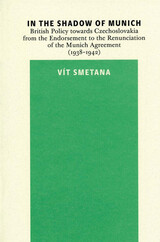
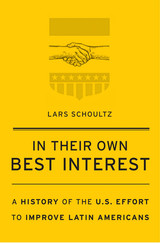
Winner of the William M. LeoGrande Prize
For over a century, the United States has sought to improve the behavior of the peoples of Latin America. Perceiving their neighbors to the south as underdeveloped and unable to govern themselves, U.S. policy makers have promoted everything from representative democracy and economic development to oral hygiene. But is improvement a progressive impulse to help others, or realpolitik in pursuit of a superpower’s interests?
“In this subtle and searing critique of U.S. efforts to ‘uplift’ Latin America, Lars Schoultz challenges us to question the fundamental tenets of the development industry that became entrenched in the U.S. foreign policy bureaucracy over the last century.”
—Piero Gleijeses, author of Visions of Freedom
“In this masterful work, Lars Schoultz provides a companion and follow-up to his classic Beneath the United States…A necessary and rewarding read for scholars and students of U.S. foreign policy and inter-American relations.”
—Renata Keller, The Americas
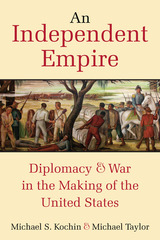
Foreign policies and diplomatic missions, combined with military action, were the driving forces behind the growth of the early United States. In an era when the Old and New Worlds were subject to British, French, and Spanish imperial ambitions, the new republic had limited diplomatic presence and minimal public credit. It was vulnerable to hostile forces in every direction. The United States could not have survived, grown, or flourished without the adoption of prescient foreign policies, or without skillful diplomatic operations.
An Independent Empire shows how foreign policy and diplomacy constitute a truly national story, necessary for understanding the history of the United States. In this lively and well-written book, episodes in American history—such as the writing and ratification of the Constitution, Henry Clay’s advocacy of an American System, Pinckney’s Treaty with Spain, and the visionary but absurd Congress of Panama—are recast as elemental aspects of United States foreign and security policy.
An Independent Empire tells the stories of the people who defined the early history of America’s international relationships. Throughout the book are brief, entertaining vignettes of often-overlooked intellectuals, spies, diplomats, and statesmen whose actions and decisions shaped the first fifty years of the United States. More than a dozen bespoke maps illustrate that the growth of the early United States was as much a geographical as a political or military phenomenon.
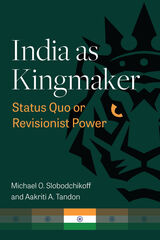
As India finds itself in the envious position of kingmaker, both the status quo and revisionist major powers are jockeying for India’s support for either upholding or revising the current world order. Using India’s bilateral treaties as a proxy measure of the strength of its relationship with other major powers, Slobodchikoff and Tandon determine whether India will remain neutral in its foreign policy approach or adopt a more assertive role in shaping the future global order. This book provides an in-depth analysis of India’s bilateral ties with major powers that include the United States, Russia, China, Japan, as well as the European Union (including the United Kingdom, France, and Germany) and uses network analysis to study India’s foreign policy positions with other major powers.
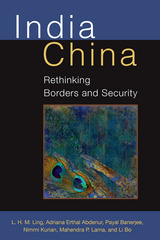
Challenging the Westphalian view of international relations, which focuses on the sovereignty of states and the inevitable potential for conflict, the authors from the Borderlands Study Group reconceive borders as capillaries enabling the flow of material, cultural, and social benefits through local communities, nation-states, and entire regions. By emphasizing local agency and regional interdependencies, this metaphor reconfigures current narratives about the China India border and opens a new perspective on the long history of the Silk Roads, the modern BCIM Initiative, and dam construction along the Nu River in China and the Teesta River in India.
Together, the authors show that positive interaction among people on both sides of a border generates larger, cross-border communities, which can pressure for cooperation and development. India China offers the hope that people divided by arbitrary geo-political boundaries can circumvent race, gender, class, religion, and other social barriers, to form more inclusive institutions and forms of governance.
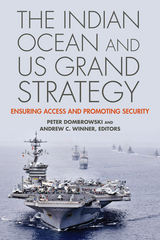
The Indian Ocean, with its critical routes for global commerce, is a potentially volatile location for geopolitical strife. Even as the region’s role in the international economy and as a highway to conflict zones increases, the US has failed to advance a coherent strategy for protecting its interests in the Indian Ocean or for managing complex diplomatic relationships across the region. The Indian Ocean and US Grand Strategy presents a range of viewpoints about whether and how the US should alter its diplomatic and military strategies for this region.
Contributors examine US interests in the Indian Ocean, assess the relative critical importance or imperiled nature of these interests, and propose solutions for American strategy ranging from minimal change to maximum engagement. The book concludes with a comparative assessment of these options and a discussion of their implications for US policymakers. This volume’s perspectives and analysis of the Indian Ocean region will be valued by scholars and students of US foreign policy, South Asia, and security studies as well as by diplomats, military officers, and other practitioners.
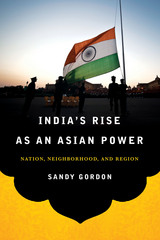
India’s Rise as an Asian Power examines India’s rise to power and the obstacles it faces in the context of domestic governance and security, relationships and security issues with its South Asian neighbors, and international relations in the wider Asian region. Instead of a straight-line projection based on traditional measures of power such as population size, economic growth rates, and military spending, Sandy Gordon’s nuanced view of India’s rise focuses on the need of any rising power to develop the means to deal with challenges in its domestic, neighborhood (South Asia), and regional (continental) spheres.
Terrorism, insurgency, border disputes, and water conflict and shortages are examples of some of India’s domestic and regional challenges. Gordon argues that before it can assume the mantle of a genuine Asian power or world power, India must improve its governance and security; otherwise, its economic growth and human development will continue to be hindered and its vulnerabilities may be exploited by competitors in its South Asian neighborhood or the wider region. This book will appeal to students and scholars of India and South Asia, security studies, foreign policy, and comparative politics, as well as country and regional specialists.
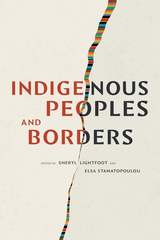
Contributors. Tone Bleie, Andrea Carmen, Jacqueline Gillis, Rauna Kuokkanen, Elifuraha Laltaika, Sheryl Lightfoot, David Bruce MacDonald, Toa Elisa Maldonado Ruiz, Binalakshmi “Bina” Nepram, Melissa Z. Patel, Manoel B. do Prado Junior, Hana Shams Ahmed, Elsa Stamatopoulou, Liubov Suliandziga, Rodion Sulyandziga, Yifat Susskind, Erika M. Yamada

Indonesia: Archipelago of Fear is a fascinating and at times unsettling journey into the world's most populous Muslim nation as it struggles to emerge from decades of dictatorship and the plunder of its natural resources.
Andre Vltchek brings together more than a decade of investigative journalism in and around Indonesia to chart the recent history of the country, from the revolution which overthrew General Suharto's genocidal dictatorship in 1998 to the present day. He covers the full breadth of the country from Islamic Aceh to mostly Catholic East Timor.
Tracing Indonesia's current problems back to Suharto's coup and the genocide of 1965 – and the support given by the West to Suharto – Vltchek provides an intimate and deeply humane insight into the hopes and fears of Indonesia's people.
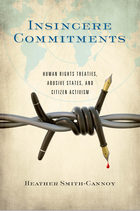
Paradoxically, many governments that persistently violate human rights have also ratified international human rights treaties that empower their citizens to file grievances against them at the United Nations. Therefore, citizens in rights-repressing regimes find themselves with the potentially invaluable opportunity to challenge their government’s abuses. Why would rights-violating governments ratify these treaties and thus afford their citizens this right? Can the mechanisms provided in these treaties actually help promote positive changes in human rights?
Insincere Commitments uses both quantitative and qualitative analysis to examine the factors contributing to commitment and compliance among post-Soviet states such as Slovakia, Hungary, Kyrgyzstan, and Tajikistan. Heather Smith-Cannoy argues that governments ratify these treaties insincerely in response to domestic economic pressures. Signing the treaties is a way to at least temporarily keep critics of their human rights record at bay while they secure international economic assistance or more favorable trade terms. However, she finds that through the specific protocols in the treaties that grant individuals the right to petition the UN, even the most insincere state commitments to human rights can give previously powerless individuals—and the nongovernmental and intergovernmental organizations that partner with them—an important opportunity that they would otherwise not have to challenge patterns of government repression on the global stage.
This insightful book will be of interest to human rights scholars, students, and practitioners, as well as anyone interested in the UN, international relations, treaties, and governance.

This textbook introduces students to the critical role of the US intelligence community within the wider national security decision-making and political process. Intelligence in the National Security Enterprise defines what intelligence is and what intelligence agencies do, but the emphasis is on showing how intelligence serves the policymaker. Roger Z. George draws on his thirty-year CIA career and more than a decade of teaching at both the undergraduate and graduate level to reveal the real world of intelligence. Intelligence support is examined from a variety of perspectives to include providing strategic intelligence, warning, daily tactical support to policy actions as well as covert action. The book includes useful features for students and instructors such as excerpts and links to primary-source documents, suggestions for further reading, and a glossary.

This book moves scholarly debates beyond the old question of whether or not international institutions matter in order to examine how they matter, even in a world of power politics. Power politics and international institutions are often studied as two separate domains, but this is in need of rethinking because today most states strategically use institutions to further their interests. Anders Wivel, T.V. Paul, and the international group of contributing authors update our understanding of how institutions are viewed among the major theoretical paradigms in international relations, and they seek to bridge the divides. Empirical chapters examine specific institutions in practice, including the United Nations, International Atomic Energy Agency, and the European Union. The book also points the way to future research. International Institutions and Power Politics provides insights for both international relations theory and practical matters of foreign affairs, and it will be essential reading for all international relations scholars and advanced students.

International Political Earthquakes is the masterwork of the preeminent scholar Michael Brecher. Brecher, who came of age before World War II, has witnessed more than seven decades of conflict and has spent his career studying the dynamics of relations among nations throughout the world.
When terrorism, ethnic conflict, military buildup, or other local tensions spark an international crisis, Brecher argues that the structure of global politics determines its potential to develop into open conflict. That conflict, in turn, may then generate worldwide political upheaval. Comparing international crises to earthquakes, Brecher proposes a scale analogous to the Richter scale to measure the severity and scope of the impact of a crisis on the landscape of international politics.
Brecher's conclusions about the causes of international conflict and its consequences for global stability make a convincing case for gradual, nonviolent approaches to crisis resolution.
Michael Brecher is R. B. Angus Professor of Political Science at McGill University.

International Propaganda was first published in 1958. Minnesota Archive Editions uses digital technology to make long-unavailable books once again accessible, and are published unaltered from the original University of Minnesota Press editions.
As the principal weapon of the cold war, international propaganda is a matter of grave importance to anyone concerned with international relations. Here, in the first study of its kind, Dr. Martin analyzes the efforts and trends toward the control of such propaganda by means of international law, domestic law, and diplomacy. As a background for his study, he traces the development of international propaganda, discusses its definitions, and describes the propaganda activities of the three giants in the field - the United States, Great Britain, and the Soviet Union.
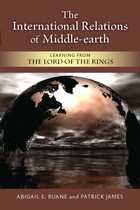
Based on their successful undergraduate course at the University of Southern California, Abigail E. Ruane and Patrick James provide an introduction to International Relations using J. R. R. Tolkien's fantastically popular trilogy The Lord of the Rings. Because Tolkien's major themes---such as good versus evil and human agency versus determinism---are perennially relevant to International Relations, The Lord of the Rings is well suited for application to the study of politics in our own world. This innovative combination of social science and humanities approaches to illustrate key concepts engages students and stimulates critical thinking in new and exciting ways.
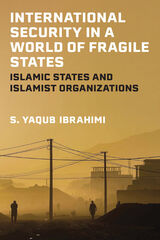
Following the 9/11 attacks on New York and Washington, DC, there has been an increasing interest among scholars, students, and the interested public to study and learn about the Islamist-oriented terrorist organizations called Jihadi Salafi Groups (JSGs). Considering that these organizations emerged in highly fragile states, S. Yaqub Ibrahimi asks: how and why is state fragility linked to the emergence of JSGs?
Ibrahimi bases his study on three events: the establishment of al-Qaeda in Afghanistan in 1998, the rise of Islamic State in the post-Saddam Hussein Iraq, and the failed al-Qaeda effort to establish a base in Saudi Arabia in 2003. These case studies contain major aspects and features of the rise of JSGs and, together, explain the contribution of state fragility to the process of the formation and expansion of these terrorist organizations.
International Security in a World of Fragile States stands out as a pivotal work on the interconnection between the root causes of JSGs and state fragility conditions and their amalgamated role in the formation and evolution of these organizations. It contributes to IR and international security debates by developing a comprehensive but readily understandable narrative of the rise of JSGs in Islamic countries, and examining them in an analytical framework in which their root causes are categorized on individual, group, and international levels.
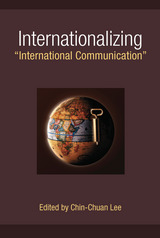
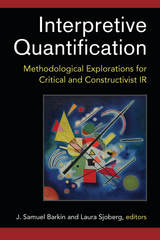
In Interpretive Quantification, ten highly regarded scholars in the field of International Relations apply quantitative methods and formal models to specific constructivist and critical research questions. In this way, each chapter serves not only as evidence that methods can productively be applied across paradigms, but also as a guide as to how this may be done. In sum, the contributors make a compelling case that when researchers cordon off particular methods for merely ideological reasons, they circumscribe their own paradigms and hinder their own research agenda.

The involvement of health professionals in human rights and humanitarian law violations has again become a live issue as a consequence of the U.S. prosecution of conflicts with al Qaeda, the Taliban, and Iraq. Health professionals—including M.D.s trained in psychiatry and Ph.D.s trained in behavioral psychology—have reportedly advised and assisted in coercive interrogation. Health professionals have also been involved in forced feedings. Such practices would not be unique to the United States nor the most extreme forms of abuse in the world. The direct involvement of medical professionals in torture, covering up extrajudicial killings, and other extreme conduct is a phenomenon common to many societies and periods of national crisis. Indeed, the widespread and repeated nature of this problem has led to the development of important legal and ethical codes on the subject. Those codes, however, are notoriously insufficient in many cases. A reexamination of the international norms, as developed in human rights law, humanitarian law, and professional ethics can shed light on these issues. However, in addition to those instruments, the struggle to end such violations requires understanding human behavior and the role of formal and informal institutional pressures.
In this volume, a wide range of prominent practitioners and scholars explore these issues. Their insights provide significant potential for reforming institutions to assist health professionals maintain their legal and ethical obligations in times of national crisis.
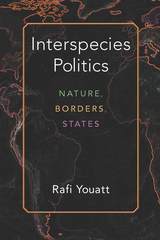
This book explores the ways that international politics is a form of interspecies politics, one that involves the interactions, ideas, and practices of multiple species, both human and nonhuman, to generate differences and create commonalities. While we frequently think of having an international politics “of” the environment, a deep and thoroughgoing anthropocentrism guides our idea of what political life can be, which prevents us from thinking about a politics “with” the environment. This anthropocentric assumption about politics drives both ecological degradation and deep forms of interhuman injustice and hierarchy.
Interspecies Politics challenges that assumption, arguing that a truly ecological account of interstate life requires us to think about politics as an activity that crosses species lines. It therefore explores a postanthropocentric account of international politics, focusing on a series of cases and interspecies practices in the American borderlands, ranging from the US-Mexico border in southern Texas, to Guantánamo Bay in Cuba, to Isle Royale, near the US-Canadian border. The book draws on international relations, environmental political theory, anthropology, and animal studies, to show how key international dimensions of states—sovereignty, territory, security, rights—are better understood as forms of interspecies assemblage that both generate new forms of multispecies inclusion, and structure forms of violence and hierarchy against human and nonhuman alike.
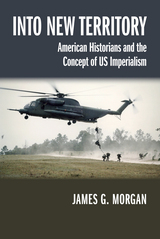
Tracing the emergence of the concept of US imperialism, James G. Morgan shows how radical and revisionist scholars in the 1950s and 1960s first challenged the paradigm of denying an American empire. As the Vietnam War created a critical flashpoint, bringing the idea of American imperialism into the US mainstream, radical students of the New Left turned toward Marxist critiques, admiring revolutionaries like Che Guevara. Simultaneously, a small school of revisionist scholars, led by historian William Appleman Williams at the University of Wisconsin, put forward a progressive, nuanced critique of American empire grounded in psychology, economics, and broader historical context. It is this more sophisticated strand of thinking, Morgan argues, which demonstrated that empire can be an effective analytical framework for studying US foreign policy, thus convincing American scholars to engage with the subject seriously for the first time.

The economic sanctions imposed on Iraq from 1990 to 2003 were the most comprehensive and devastating of any established in the name of international governance. The sanctions, coupled with the bombing campaign of 1991, brought about the near collapse of Iraq’s infrastructure and profoundly compromised basic conditions necessary to sustain life.
In a sharp indictment of U.S. policy, Joy Gordon examines the key role the nation played in shaping the sanctions, whose harsh strictures resulted in part from U.S. definitions of “dual use” and “weapons of mass destruction,” and claims that everything from water pipes to laundry detergent to child vaccines could produce weapons. Drawing on internal UN documents, confidential minutes of closed meetings, and interviews with foreign diplomats and U.S. officials, Gordon details how the United States not only prevented critical humanitarian goods from entering Iraq but also undermined attempts at reform; unilaterally overrode the UN weapons inspectors; and manipulated votes in the Security Council. In every political, legal, and bureaucratic domain, the deliberate policies of the United States ensured the continuation of Iraq’s catastrophic condition.
Provocative and sure to stir debate, this book lays bare the damage that can be done by unchecked power in our institutions of international governance.
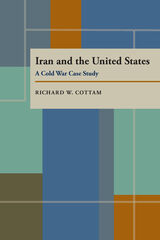
Richard Cottam served in the U.S. embassy in Tehran from 1956 to 1958 and was consulted by the Department of State during the 1979 hostage crisis. This book draws upon his expert personal knowledge of Iranian politics to describe the spiraling decline of U.S.-Iranian relations since the cold war and the political consequences of those years U.S. policy, he argues, is flawed by ignorance, inertia, the tenacity of a cold war mentality, a quixotic tilt toward Iraq, and the blatant inconsistency of the Reagan administration's arms-for-hostages scheme that produced the Iran-contra scandal.

Irish Writers in the Irish American Press spans the period from Oscar Wilde's 1882 American lecture tour to the months following JFK's assassination and covers the century in which Irish American identity was shaped by immigration, religion, politics, and economic advancement. Through a close engagement with Irish American periodicals, Butler offers a more nuanced understanding of the connections between Irish literary studies and Irish American culture during this period.

Thrust into power in the midst of the bloodiest conflict Europe had ever experienced, Amalia Elisabeth fought to save her country, her Calvinist church, and her children’s inheritance. Tryntje Helfferich’s vivid portrait reveals how this unique and embattled ruler used her diplomatic gifts to play the great powers of Europe against one another during the Thirty Years War, while raising one of the most powerful and effective fighting forces on the continent.
Stranded in exile after the death of her husband, Amalia Elisabeth stymied the maneuvers of male relatives and advisors who hoped to seize control of the affairs of her tiny German state of Hesse-Cassel. Unshakable in her religious faith and confident in her own capacity to rule, the princess crafted a cunning strategy to protect her interests. Despite great personal tragedy, challenges to her rule, and devastating losses to her people and lands, Amalia Elisabeth wielded her hard-won influence to help shape the new Europe that arose in the war’s wake. She ended her reign in triumph, having secured the birthright of her children and the legalization of her church. The Iron Princess restores to view one of the most compelling political figures of her time, a woman once widely considered the heroine of the seventeenth century.

By drawing on a detailed field research and other sources, this book explains precisely which resistance strategies are able to influence both political and economic outcomes. Kröger expands the focus of traditionally Latin American extractivism research to other contexts such as India and the growing extractivist movement in the Global North. In addition, as the book is a multi-sited political ethnography, it will appeal to sociologists, political scientists, anthropologists, geographers, and others using field research among other methods to understand globalization and global political interactions. It is the most comprehensive book on the political economy and ecology of iron ore and steel. This is astonishing, given the fact that iron ore is the second-most important commodity in the world after oil.

The most significant conquest of the twentieth century may well have been the triumph of American consumer society over Europe’s bourgeois civilization. It is this little-understood but world-shaking campaign that unfolds in Irresistible Empire, Victoria de Grazia’s brilliant account of how the American standard of living defeated the European way of life and achieved the global cultural hegemony that is both its great strength and its key weakness today.
De Grazia describes how, as America’s market empire advanced with confidence through Europe, spreading consumer-oriented capitalism, all alternative strategies fell before it—first the bourgeois lifestyle, then the Third Reich’s command consumption, and finally the grand experiment of Soviet-style socialist planning. Tracing the peculiar alliance that arrayed New World salesmanship, statecraft, and standardized goods against the Old World’s values of status, craft, and good taste, Victoria de Grazia follows the United States’ market-driven imperialism through a vivid series of cross-Atlantic incursions by the great inventions of American consumer society. We see Rotarians from Duluth in the company of the high bourgeoisie of Dresden; working-class spectators in ramshackle French theaters conversing with Garbo and Bogart; Stetson-hatted entrepreneurs from Kansas in the midst of fussy Milanese shoppers; and, against the backdrop of Rome’s Spanish Steps and Paris’s Opera Comique, Fast Food in a showdown with advocates for Slow Food. Demonstrating the intricacies of America’s advance, de Grazia offers an intimate and historical dimension to debates over America’s exercise of soft power and the process known as Americanization. She raises provocative questions about the quality of the good life, democracy, and peace that issue from the vaunted victory of mass consumer culture.

For the last several decades an influential group of Egyptian scholars and public intellectuals has been having a profound effect in the Islamic world. Raymond Baker offers a compelling portrait of these New Islamists--Islamic scholars, lawyers, judges, and journalists who provide the moral and intellectual foundations for a more fully realized Islamic community, open to the world and with full rights of active citizenship for women and non-Muslims.
The New Islamists have a record of constructive engagement in Egyptian public life, balanced by an unequivocal critique of the excesses of Islamist extremists. Baker shows how the New Islamists are translating their thinking into action in education and the arts, economics and social life, and politics and foreign relations despite an authoritarian political environment. For the first time, Baker allows us to hear in context the most important New Islamist voices, including Muhammad al Ghazzaly, Kamal Abul Magd, Muhammad Selim al Awa, Fahmy Huwaidy, Tareq al Bishry, and Yusuf al Qaradawy--regarded by some as the most influential Islamic scholar in the world today. A potentially transformative force in global Islam, the New Islamists define Islam as a civilization that engages others and searches for common ground through shared values such as justice, peace, human rights, and democracy.
Islam without Fear is an impressive achievement that contributes to the understanding of Islam in general and the possibilities of a centrist Islamist politics in particular.
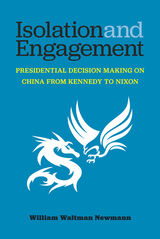


Journalist Jonathan Cook explores Israel’s key role in persuading the Bush administration to invade Iraq, as part of a plan to remake the Middle East, and their joint determination to isolate Iran and prevent it from acquiring nuclear weapons that might rival Israel’s own.
This concise and clearly argued book makes the case that Israel's desire to be the sole regional power in the Middle East neatly chimed with Bush’s objectives in the “war on terror”.
Examining a host of related issues, from the ethnic cleansing of Palestinians to the role of Big Oil and the demonisation of the Arab world, Cook argues that the current chaos in the Middle East is the objective of the Bush administration – a policy that is equally beneficial to Israel.
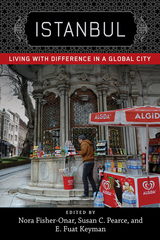
Rather than exploring Istanbul as one place at one time, the contributors to this volume focus on the city’s experience of migration and globalization over the last two centuries. Asking what Istanbul teaches us about living with people whose hopes jostle with one’s own, contributors explore the rise, collapse, and fragile rebirth of cosmopolitan conviviality in a once and future world city. The result is a cogent, interdisciplinary exchange about an urban space that is microcosmic of dilemmas of diversity across time and space.
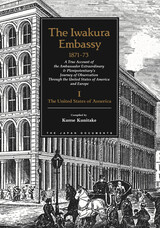
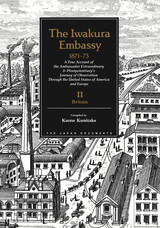
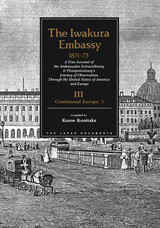
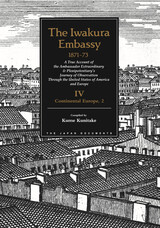
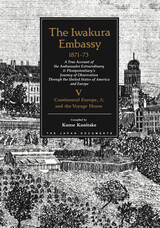
READERS
Browse our collection.
PUBLISHERS
See BiblioVault's publisher services.
STUDENT SERVICES
Files for college accessibility offices.
UChicago Accessibility Resources
home | accessibility | search | about | contact us
BiblioVault ® 2001 - 2024
The University of Chicago Press









